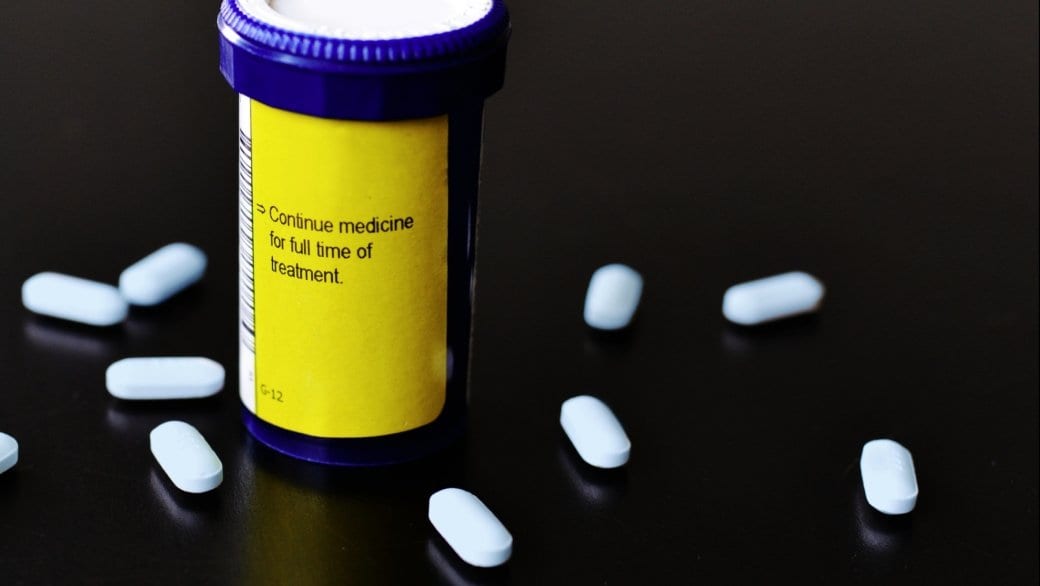The decision has left men scrambling to get hold of enough of the drug to stay safe, and could put some at higher risk of HIV infection even if they stop having sex now.
Connor, whose name Daily Xtra agreed to withhold to protect his and his boyfriend’s identity, jumped through the complex hoops to get PrEP covered by insurance last year. Connor’s boyfriend of six months is HIV-positive, and the drug allows them to have condomless sex with very little risk of infection.
Without insurance, the drug could cost Connor nearly $1,000 a month. (Though Health Canada approved Truvada as PrEP in February 2016, unlike HIV treatment drugs, it’s still not covered by most provincial pharmacare programs.)
Last week, when Connor went to refill his prescription, his pharmacist told him his insurance coverage was inexplicably denied. The pharmacist suggested that perhaps he needed to go through the registration process again.
But a few days later, Connor got a letter from his insurer, Pacific Blue Cross:
“Our records indicate Truvada is prescribed to you for pre-exposure prophylaxis (PrEP). According to the terms, conditions and benefits of your Extended Health Care contract . . . this drug is not a benefit as there is no prevision under your plan to cover preventative medications.”
“We will not be adjusting the previously paid claims and recover the funds as it was our error. Please be advised that any future claims for Truvada will not be eligible, as we must abide by terms and conditions of the Contract.”
Daily Xtra has confirmed at least half a dozen other men received similar letters.
The letter left Connor with only five Truvada pills left in his bottle, and no way to get more.
While it is sometimes possible to bring generic Truvada into Canada from the United States, the process can take months.
“Without it, I’m not sure what we’ll do,” Connor says. “It’s a really painful example of the problems that are caused by relying on insurers to provide something like this.”
And it’s not good enough for Connor to simply stop having sex with his partner, or to start using condoms. Doctors recommend that men continue taking Truvada for 28 days after HIV exposure to prevent infection. Suddenly stopping Truvada, like Connor will have to, puts him at risk of infection whatever he does.
“Of course it’s a legitimate medical concern,” says Joss de Wet, a doctor at the Spectrum sexual health clinic in Vancouver. “It’s highly irresponsible to kick people off a preventative medication without due warning. You need to give people ample warning with any preventative medication, you need to make sure they have ample time and ample drugs.”
De Wet says men who are cut off PrEP should consider getting a prescription to post-exposure prophylaxis, or PEP, which is covered by hospitals. Running out of Truvada and becoming infected, he says, could even lead to particularly dangerous strains of drug resistant HIV.
“This is highly unacceptable, and I think Blue Cross should review this immediately,” he says.
Pacific Blue Cross’ director of pharmacy services, Joanne Jung, says the company apologizes for the confusion, but says it was never supposed to cover Truvada. She says policy holders have to specifically add Truvada to their coverage if they want access.
When Daily Xtra points out that Pacific Blue Cross’ rejection letter specifically targets preventative medications — and that the same insurance plans that now reject Truvada still cover birth control and preventative heart disease drugs like statins — Jung reiterates that preventative medicines have to be added one by one.
“Statins are covered on all drug plans because they are treatments for hypercholesterolemia and not considered prevention. Amongst the supplementary drug categories, a plan may cover birth control only and not cover the other ones, such as vaccines and PreP. It is not all or none. Private prescription drug plans were developed to treat medically necessary conditions, so traditionally the preventative drugs were always options that a plan sponsor may add.”
Experts in HIV prevention say the best way to permanently solve the PrEP problem, and slash HIV infection rates, is to cover Truvada in a provincial pharmacare plan, as is the case in Quebec.


 Why you can trust Xtra
Why you can trust Xtra


